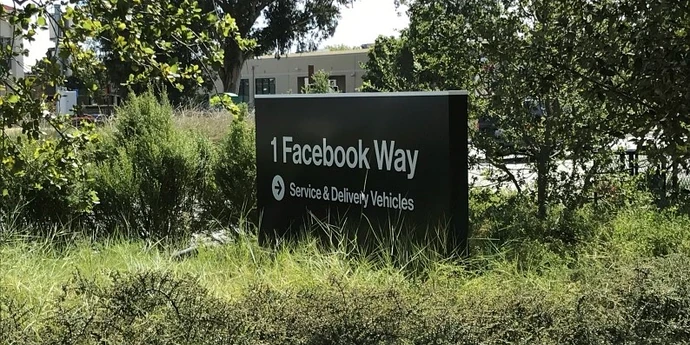If you're interviewing for a competitive role, there is a good chance you'll face the question “Tell me about a time you had a conflict at work”.
This will give you a great chance to show important character traits such as self-awareness, humility and empathy, as well as leadership skills such as persuasiveness and diplomacy. However, tackle this question in the wrong way and it can really backfire.
In this guide, we explain why interviewers ask this question and how you can ace it.
We’ll look at five different example answers and we’ll explain how exactly you should prepare for this and other common interview questions:
- How to answer "Tell me about a time you had a conflict at work"
- What NOT to do
- Five example answers to "Tell me about a time you had a conflict at work" and its variations
- Practice answering common behavioral questions
Here’s one thing you should know right away: don't talk about a conflict that was never resolved, it might reflect badly on you.
Practice common interview questions 1-to-1 with top ex-interviewers
How to answer “Tell me about a time you had a conflict at work”
Okay, let’s see what interviewers are looking for and what you need to know in order to ace this question. We’ve distilled all of it into five key points. Read and absorb them, and then we’ll show you some example answers.
#1 Demonstrate empathy
More than anything else, the interview is testing you for empathy here. They want to see that you're capable of seeing things from somone else's perspective, and thereby able to reflect on your own behavior and identify points for improvement.
With that in mind, talk about how you listened and understood a conflicting viewpoint. Describe how you asked the right questions, sought common ground and examined your own assumptions.
"Stay professional", says Alexandre, ex-interviewer at Deutsche Bank. "Focus on the issue and not the person. This shows maturity and emotional intelligence."
#2 Try to describe a conflict that you successfully resolved
In answers to behavioral questions like this, you need to be the hero of your story. The interviewer wants to hear how you (not someone else!) resolved the conflict, so if possible use an example that had a positive outcome thanks to your actions.
"Emphasize how you took steps to resolve the conflict constructively and maintained a good working relationship" says Alexandre. "You should end with a positive outcome or a lesson learned that improved team dynamics or your approach to conflict in the future."
Think very carefully before using an example where the conflict got too serious or was impossible to resolve - even if none of it was your fault, just by association it may not reflect well on you.
#3 Consider using a group conflict situation
If you're still fairly junior, this might be tricky, but for maximum points talk about a work conflict that involved a group of people.
Why? Because by describing how you were able to resolve the conflict successfully, you'll demonstrate stronger leadership skills than if the conflict had been just between you and someone else. After all, being able to influence, align and persuade various different stakeholders is a key part of a management role.
#4 Demonstrate backbone
For competitive roles, interviewers love to see some that you've got some "backbone". Amazon even include "Have backbone: disagree and commit" as one of their leadership principles. In this context, you can see that a conflict of opinions can actually be a good thing, rather than something to be avoided.
Any group of smart leaders will disagree at some point. Your interviewer will want to see that you know when to challenge ideas and escalate problems to senior leadership if necessary. At the same time, they want to know that you can sense the right time to move forward regardless of your disagreement. Show that you’re capable of striking that balance.
#5 Structure your answer
“Tell me about a time you had a conflict” is a behavioral interview question. Behavioral questions are when the interviewer asks you about past experiences in order to assess whether you display the kind of behaviors they’re looking for.
Using an answer framework will help you structure your answers to behavioral questions. You’ll see that most of our “Tell me about a time you had a conflict” example answers below follow the SPSIL framework:
- Situation
- Problem
- Solution
- Impact
- Lessons
We recommend you use the SPSIL framework, as we believe it’s better than the more commonly-used STAR framework.
If you want to see why SPSIL is better, see our complete guide to behavioral interview questions.
What NOT to do
There are some very common pitfalls when answering "Tell me about a time you had a conflict", so make sure you avoid them.
#Don't say you've never had a conflict
It can be tempting to say that you've never had a conflict, that you're a very empathetic person who has always got on well with all their coworkers and peers. This might well be true, but even if it is, it's not a strong answer.
Why not? Because top employers want to hire people with leadership potential, and once you're in a leadership position, some conflicts are inevitable as you are forced to take more difficult decisions. By saying you've never had a conflict, you're passing up the chance to demonstrate that you're capable of getting a positive outcome from difficult situations.
"Saying "I’ve never had conflict at work" can make you seem inexperienced or unwilling to engage in difficult conversations" agrees Alexandre.
If you really can't think of any type of conflict you've experienced at work, you could use one from your personal life (not too personal!) but you'll want to clearly explain why the lessons you learned are relevant to the role.
#Avoid spending too long on the conflict itself
Try not to spend too long setting up the situation and talking about what was causing the conflict, especialy if it's a personality clash siutation. It's usually more powerful to focus more on the positive stuff - how you resolved the conflict, the positve impact, and the lessons learned.
"Don’t dwell too much on the negative aspects" says Alexandre. "Keep the focus on resolution and impact".
#Don't badmouth anyone
You might have an example of working with a customer or co-worker who was being really difficult, and that's fine, but avoid putting all the blame on their bad behavior. It's a negative experience for the interviewer to listen to you complaining about another person and doesn't reflect very well on you - they want to hire someone who will bring out the best in people, not the worst.
Your answer will be much stronger if you can keep a positive focus in your answer and demonstrate empathy and self-reflection.
#Avoid giving away confidential details
Even within the four walls of an interview room, you should still respect the confidentiality of your employers and co-workers past and present. If you describe dealing with sensitive issues or negative behavior, avoid giving away the identity of the people involved.
5 example answers to “Tell me about a time you had a conflict at work”
With the points we’ve covered above, you should be ready to start preparing your answer.
So you can see what to aim for, we’ve created five strong example answers. You'll see we've included some of the different ways the question can be framed.
Note that all our example answers follow the SPSIL framework we described above. Using SPSIL or another frameowork like STAR makes it easier to structure your answer.
#1 “Tell me about a time you had a conflict” (student / junior candidate)
Example answer: non-workplace conflict
"I'd like to tell you about a conflict I had outside the workplace, as I think the lessons I learned are very relevant to the role. How does that sound?
(Situation)
During my time as a student, I was part of a group entreprenuership project. We were given a $300 dollar budget to set up a business venture and try and make a profit over a three-day period.
(Problem)
There were a couple of team members who had very strong ideas and seemed to want to dominate every aspect of decision-making, sidelining other team members. Furthermore, another student who was very vocal in the beginning had seemingly lost interest and was making lots of negative comments.
We had no set roles and I quickly realized that this was the main cause of the problem, as it meant that we were all debating every decision and whoever insisted most strongly got their way.
(Solution)
I initiated a discussion and proposed that we demarcated areas of responsibilities in a way that was fair and gave everyone some agency in the project. I suggested that this would be much more efficient as we wouldn't have to debate every single decision that needed making. Everyone agreed and we divided up into various areas - product, operations, marketing, etc.
I then talked to the negative team member in private. With some coaxing, he told me that he felt that his ideas had been ignored by everyone, myself included. I apoligised sincerely and explained that I had been having difficulty organizing my thoughts and my lack of response was in no reflection on what I thought of his ideas. I promised to listen more carefully to them moving forward.
(Impact)
I think the team member just needed to feel listened to, as his attitude improved a lot and he made good progress in his area of the project. I made a mental note to try harder to show that I valued all the team members opinions and to always provide a well-considered response.
With divided responsibilities we worked much more efficiently and harmoniously, and we were able to successfully complete the challenge by making a small profit.
(Lessons)
I learned that demarcating responsibilities and fostering open communication are key to conflict prevention and effective collaboration. I also saw that acknowledging and valuing every team member's input, regardless of assertiveness, is vital, and something that I needed to get better at."
Note how even though this story takes place outside the workplace, it still manages to demonstrate key leadership skills that are relevant to almost any role - empathy, tact and diplomacy, and intiative, as well as strong project management abilities.
#2 “Tell me about a time you dealt with a conflict" (management-level candidate)
Example answer: personality clash
(Situation)
“Unfortunately, over the years I’ve found that conflicts can sometimes arise from clashing personalities. When I was a lead software engineer at a fintech startup, one of my new engineers, Rob, told me that he had a hard time working with another engineer, Benji.
(Problem)
He explained that Benji was consistently rude and demeaning to him, to the extent that Rob was ready to change teams or even leave the company.
(Solution)
With Rob’s permission, I brought this up with Benji in our next one-on-one. Benji admitted that he likes to joke around and tease his coworkers, but that none of it was ill-intended and he didn’t feel that he had done anything wrong.
However, I insisted to Benji that while I personally enjoyed his sense of humor, we all had a responsibility to make sure we created a friendly, safe and professional environment for every team member. I encouraged him to speak to Rob directly and apologize for the misunderstanding, and to keep his interactions with Rob more matter-of-fact in the future.
(Impact)
I offered to be present as a mediator, but Ben elected to initiate the conversation himself. I checked in with Rob regularly in the weeks and months following, and he reported that his working relationship with Ben had greatly improved.
(Lessons)
The experience showed me that people can perceive the same situation very differently, and often the key to solving conflicts is simply talking it through and listening actively.”
A conflict resolution story like the example above is a nice way to demonstrate your people management skills. Bear in mind that while we've included names to make the example easier for you to read, in reality you'd probably want to keep things anonymous to respect people's privacy.
#3 “Tell me about a time you had a conflict at work" (junior/mid-level candidate)
Example answer: behavior clash
(Situation)
“In my past job, when I first joined I was very eager and frequently jumped in with ideas and volunteered to lend a hand in many tasks.
(Problem)
I began to notice in our team meetings that one of my coworkers began cutting me off when I presented ideas. Later, when I volunteered to help with a task that concerned his functional area, he neglected to give me the information and resources I needed.
(Solution)
To solve this, my first step was to examine my own behavior to understand how it may have sparked the conflict. I determined that my eagerness to contribute to the discussions and project may have overstepped some bounds.
My next step was to meet with my coworker. I politely expressed how his behavior was preventing me from speaking up in meetings and helping with important tasks, then asked if I had overstepped any boundaries. He agreed, explaining that I had taken up too much time in the meetings, giving him and others less of an opportunity to present their teams’ work.
First, I apologized for my initial behavior, and promised I would be more attentive to the time I spent speaking in meetings and would only volunteer for tasks when I was confident I was well equipped to contribute. In exchange, I requested that he approach me in case further issues arise, instead of closing me off from discussions or projects. He agreed.
(Impact)
From then on, we each adjusted our behavior and worked on many successful projects together without any further problem.
(Lessons)
This experience taught me to be much more receptive to coworkers’ feedback and work to keep my contributions quick and to the point in meetings. Also, it taught me to address issues as soon as they arise, as we were able to move on from that conflict very quickly instead of allowing it to grow into a larger problem.”
Notice how the candidate doesn’t try blame their co-worker for the obstructive behavior, nor do they spend time describing how it must have made them feel. Instead, they quickly and clearly articulate what happened and focus on solutions and lessons learned.
#4 “Tell me about a time you dealt with a group conflict" (mid/senior candidate)
Example answer:
(Situation)
Certainly. In my previous role I found myself in the midst of a conflict regarding resource allocation for two critical projects within our development team.
(Problem)
The conflict arose when both the product development and infrastructure enhancement teams were vying for the same limited resources for their respective projects. I could empathise with both their perspectives but it seemed to me that many of the people involved were basing their arguments on their "gut feeling" around what was "fair".
(Solution)
Recognizing the potential disruption this conflict could cause, I organized a collaborative discussion involving representatives from both teams, project managers, and the leadership. During this discussion, we openly addressed the conflicting priorities and resource needs of each project. I encouraged a transparent sharing of data and information regarding the potential impact of both projects on the company's goals.
This way we were able to base our discussion around the data, rather than around people's subjective opinions and hunches.
(Impact)
By presenting a data-driven analysis and illustrating how each project aligned with the company's objectives, we were able to justify the resource allocation for both initiatives. The infrastructure team ended up with slightly less than they were hoping for, but presented with the data, they accepted that this was a fair distribution of resources. In the end, both projects progressed effectively.
(Lessons)
Ultimately, this experience taught me how useful data can be in solving or avoiding these types of conflicts. When people are using opinion, hunches and emotions to make decisions, disagreements occur and they tend to feel more personal. But when the decision-making process is data-driven there is less room for subjective opinion and it becomes easier to align different stakeholders."
This is a really strong answer, portraying the candidate as an excellent problem-solver, highly data-driven, and with plenty of initiative.
#5 “Tell me about a time you had a conflict at work” (management-level candidate)
Example answer:
(Situation)
Certainly. In my role as a engineering manager at small startup, I encountered a conflict related to client expectations versus technical feasibility.
(Problem)
We were tasked with developing a cutting-edge feature within a tight timeframe, but as we delved deeper, it became evident that meeting the initial requirements precisely would pose significant technical challenges.
Talking to the account manager I understood that the client was getting increasingly frustrated, even though my engineers were frequently staying late to try and meet deadlines. This frustration was also negatively affecting the relationship between the accounts team and my engineers.
(Solution)
Normally we left client relationships to the accounts team, but in this case I initiated an in-person meeting involving both our development team and the client stakeholders. I felt that as the technical experts, we were best place to explain to them why it was not a good idea to rush the developments through, as they wanted.
During the meeting, we presented a detailed technical analysis, showcasing the current project status and explaining the limitations we were facing. We proposed alternative approaches that could achieve a similar outcome without jeopardizing the stability and quality of the product.
(Impact)
The client really appreciated the detailed explanation and admitted that they hadn't fully understood the complexity of what they were asking for. Having the meeting in-person was really helpful too, as it helped create an atmosphere of honesty and trust that had been difficult to achieve in video calls.
After this meeting, we agreed upon a modified solution that balanced their expectations with the technical reality.
(Lessons)
For me, this experience shows that so many instances of conflict and stress are simply the result of misaligned expectations, and can be solved through honest and open communication. I also realised that empathy is one of the most important skills I can have as a manager: to solve the conflict, I needed to understand the perspectives of the my engineers, the client, and the accounts team. Taking the time to listen and empathise with each viewpoint is crucial in these types of situations."
This kind of "client conflict" answer is useful to have prepared because you can adapt it for questions about "dealing with difficult customers/clients / stakeholders", which are very common if you're in an outward-facing role.
Practice answering common behavioral questions
We've coached more than 15,000 people for interviews since 2018. There are essentially three activities you can do to practice for interviews. Here’s what we've learned about each of them.
Practice by yourself
Practicing by yourself is an essential first step. You should be able to tell your conflict story naturally, neither missing key details nor memorizing them word-for-word. Do the same for the other common behavioral interview questions.
Of course, by yourself you can’t simulate thinking on your feet or the pressure of performing in front of a stranger. Plus, there are no unexpected follow-up questions and no feedback.
That’s why many candidates try to practice with friends or peers.
Practice with peers
If you have friends or peers who can do mock interviews with you, that's an option worth trying. It’s free, but be warned, you may come up against the following problems:
- It’s hard to know if the feedback you get is accurate
- They’re unlikely to have insider knowledge of interviews at your target company
- On peer platforms, people often waste your time by not showing up
For those reasons, many candidates skip peer mock interviews and go straight to mock interviews with an expert.
Practice with experienced interviewers
In our experience, practicing real interviews with experts who can give you company-specific feedback makes a huge difference.
Find an interview coach so you can:
- Test yourself under real interview conditions
- Get accurate feedback from a real expert
- Build your confidence
- Get company-specific insights
- Learn how to tell the right stories, better.
- Save time by focusing your preparation
Landing a job at a big tech company often results in a $50,000 per year or more increase in total compensation. In our experience, three or four coaching sessions worth ~$500 make a significant difference in your ability to land the job. That’s an ROI of 100x!
Click here to book behavioral mock interviews with experienced interviewers















